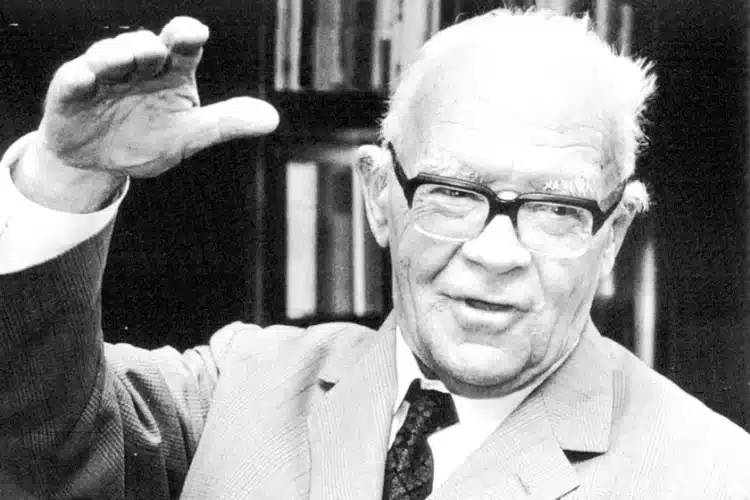Georg Wittig (16 June 1897 – 26 August 1987) was a German chemist. Georg Wittig was awarded the Nobel Prize in Chemistry in 1979.
Life and Career
Georg Wittig was born on 16 June 1897, in Berlin, Germany.
Wittig pursued his education in chemistry at the University of Tübingen and later at the University of Marburg. He received his doctorate in 1926 for his research on phosphorus ylides, a class of organic compounds.
Wittig’s career was marked by his groundbreaking work in the field of organic chemistry. He is most famous for his development of the Wittig reaction, a chemical process that allows for the synthesis of alkenes from aldehydes or ketones. This reaction has become a fundamental tool in organic synthesis and has had a significant impact on various industries, including pharmaceuticals and materials science.
Georg Wittig passed away on 26 August 1987, in Heidelberg, Germany.
Award and Legacy
Georg Wittig was awarded the Nobel Prize in Chemistry in 1979. He shared this honor with Herbert C. Brown for their development of the use of boron- and phosphorus-containing compounds in important organic synthesis.
Wittig’s legacy continues to influence the field of organic chemistry and beyond. His work laid the foundation for advancements in chemical synthesis and the creation of complex molecules. The Wittig reaction remains a critical tool for chemists, and his innovative thinking has inspired generations of scientists to push the boundaries of knowledge.

